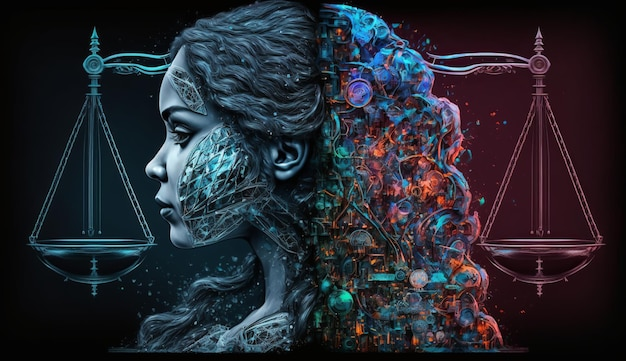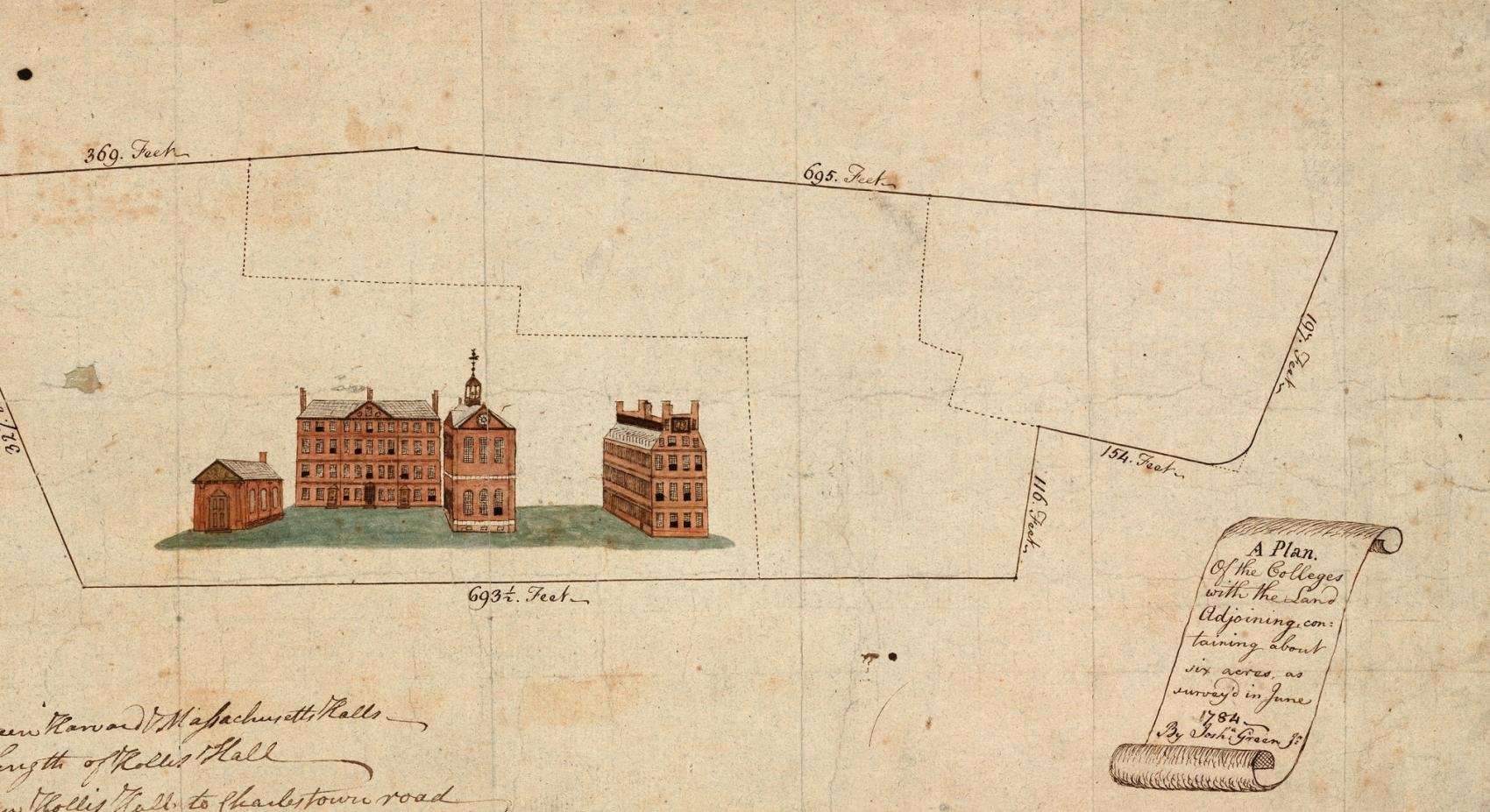AI and social justice are themes converging in today’s discussions about technology’s role in shaping our future. Prominent voices, like Ruha Benjamin, highlight the necessity to critique the ethical dimensions of artificial intelligence as it intertwines with societal equity. The promise of technology often overshadows its potential for oppression, with advancements sometimes reinforcing existing disparities instead of dismantling them. As Benjamin argues, while the elite may envision a future driven by AI, we must question whether their visions serve the collective good or merely their self-interests. Ultimately, prioritizing social justice technology can pave the way for a more equitable future for humanity, where algorithms are designed to uplift rather than marginalize.
The intersection of technology and societal equity showcases the urgent need to evaluate the impact of automated systems on our communities. As we venture into a new era defined by machine learning and algorithmic governance, discussions around the ethics of automation become critical. Scholars and activists alike are calling for a re-examination of how these advanced tools affect marginalized populations, shedding light on the darker side of innovation. With voices like Ruha Benjamin’s challenging the narrative, we are invited to explore alternative futures that prioritize fairness and inclusivity. By confronting the mental barriers that hinder our imagination, we can cultivate innovative solutions that genuinely reflect the needs of the people.
AI’s Role in Shaping a Just Future
In her thought-provoking Tanner Lectures, Ruha Benjamin pressed the necessity of reimagining the future of humanity through the lens of artificial intelligence (AI) and social justice. This is particularly significant as we navigate an era where billionaires and tech elites exert considerable influence over technological advancements. These individuals often present their innovations as altruistic yet frequently pursue self-interest disguised as the common good. Thus, it is imperative to critically assess the role AI plays in envisioning a future that serves everyone equitably rather than exacerbating existing inequalities.
Benjamin’s insights shed light on the ethical dilemmas surrounding artificial intelligence. For instance, policies driven by AI can lead to outcomes that disproportionately affect marginalized communities. The ethics of AI should not merely revolve around efficiency but must encompass a broader understanding of social justice technology. By actively including voices from diverse backgrounds in the development of AI systems, we can ensure that these technologies contribute to dismantling mental barriers and challenge systemic oppression, enabling a future that is genuinely just and inclusive.
Dismantling Mental Barriers to Innovation
Ruha Benjamin emphasized the importance of creativity and imagination in dismantling mental barriers that impede innovation. Society often sees boundaries around what constitutes practical or feasible solutions, particularly when it involves public goods like education and housing. This perspective restricts our ability to envision a future liberated from the constraints of profit-driven motives. By reframing the discussion around technological advancement, we can pave the way for more equitable approaches that prioritize the well-being of communities as opposed to the interests of the powerful few.
In her lectures, Benjamin urges us to reconsider the narratives we accept about innovation. Too often, revolutionary ideas are dismissed as utopian fantasies, while harmful systems are seen as inevitable. Encouraging a collective imagination allows us to challenge the status quo, to envision cities without surveillance and policies driven by empathy rather than algorithms. It is through nurturing these creative perspectives that we can inspire true change and prioritize the voices of those historically marginalized in tech discourse.
The Ethical Implications of AI Development
The ethical implications of AI development cannot be underestimated. Ruha Benjamin argues that many AI systems, while marketed as advancements, often perpetuate harmful disparities and systems of oppression. For example, predictive policing algorithms can disproportionately target communities of color, echoing historic injustices rooted in the eugenics movement. Recognizing these patterns is crucial for developing a framework of artificial intelligence ethics that genuinely considers the social impact of these technologies, rather than simply boosting profit margins or efficiency.
In moving forward, it is essential to incorporate ethical considerations into the foundations of AI technology. As Benjamin stated, computational depth must be paired with social and historical depth. Without this balance, technological advancements risk reconsolidating power in the hands of the elite rather than encouraging systemic change that benefits all. By embedding ethical conversations in both the business and research sides of AI, we can create a more equitable future where technology serves humanity, not the other way around.
Imagining a World Beyond Borders and Surveillance
Ruha Benjamin calls for a radical reimagining of our societal structures, envisioning a world beyond the constraints of borders and surveillance. She critiques the tendency to accept harsh realities as insurmountable, urging us to utilize our imaginations to conceive of more just futures. This perspective challenges conventional ideas that label public goods as impractical while endorsing extravagant technological fantasies. By envisioning a future free of oppressive systems, we can unlock new potentials for societal cohesion and understanding.
In adopting this vision, we must engage in critical dialogues about the role of technology in society. Imagining a world without policing or systemic control invites us to reflect deeply on what public safety and community well-being truly mean. Such radical thinking can lead to innovative approaches to governance, societal organization, and even the design of our cities, fostering an environment where creativity and justice thrive together. With commitment and collective effort, we can build a landscape where these boundaries are not just crossed but entirely dismantled.
The Need for Interdisciplinary Dialogue in Tech
Benjamin’s lecture highlights the crucial role of interdisciplinary dialogue in shaping the future of technology and its ethical implementation. By bringing together experts from various fields—arts, humanities, and sciences—we can create a holistic understanding of the implications of AI on society. This approach counters the trend toward siloed knowledge and fosters inclusive discussions that incorporate a wide range of perspectives and experiences. Such collaboration encourages the development of technology that reflects the nuanced realities of our diverse population.
Moreover, interdisciplinary dialogue can serve as a breeding ground for innovative solutions to pressing social issues. By integrating perspectives from sociology, ethics, and marginalized communities, we can create tech solutions that genuinely address the needs of society rather than reinforcing existing hierarchies. Emphasizing collaboration across disciplines will challenge the dominant narratives around innovation, allowing for creative processes to thrive and ensuring that all voices are represented in the conversation about our digital future.
Creativity as a Catalyst for Change
Call it a gentle revolution: Ruha Benjamin encourages society to embrace creativity as a powerful catalyst for change. Rather than merely tweaking harmful systems or implementing ‘band-aid’ solutions, Benjamin advocates for a fundamental reimagining of our societal frameworks. Embracing the arts and humanities within technological discourse allows us to explore alternative visions of future communal living—ones that prioritize access, equity, and compassion.
This creative approach not only generates new ideas but also fosters an environment where questioning the status quo is seen as a strength rather than a weakness. By empowering communities to engage in artistic and imaginative processes, we can break down barriers and inspire transformative solutions that go beyond algorithm-driven efficiency. This shift can lead to technological designs that truly serve the common good, ultimately reshaping how we view and integrate technology into our lives.
The Influence of Tech Elites on Social Equity
Ruha Benjamin raises significant concerns regarding the influence of tech elites on the trajectory of social equity within the realms of AI and innovation. It is increasingly clear that the vision of AI-driven futures is often crafted by a small group of powerful individuals, whose motivations may not align with the public interest. This disparity in outlook poses a challenge for achieving collective well-being, especially for marginalized communities who may bear the brunt of these unchecked ambitions.
To counterbalance the disproportionate power held by tech elites, it is critical to amplify the voices of underserved populations in discussions about AI and its implications. By taking a participatory approach to technology development, we can ensure that equity becomes a foundational principle rather than an afterthought. Ultimately, fostering diverse perspectives will encourage the creation of AI systems that address the broad spectrum of human experiences, promoting a more just society.
Strengthening the Role of Humanities in Tech Innovation
In a world increasingly dominated by technology, Ruha Benjamin argues for the critical reintegration of the humanities into tech innovation dialogues. The arts and humanities facilitate explorations of ethics, history, and culture that are essential to understanding the broader social implications of AI and technology. By prioritizing these fields in the education and development of technology, we create a deeper consciousness regarding the impact of our creations.
Integrating humanities with technology isn’t merely an academic pursuit; it represents a necessary shift in how we conceive and deploy technological solutions. When artists, philosophers, and sociologists are included in innovation processes, we broaden the scope of inquiry to include emotional and cultural considerations. This holistic approach ensures that the evolution of technology is informed by the values of justice and inclusivity, paving the way for advancements that serve humanity’s diverse needs.
Fostering Inclusive Narratives in Technology Development
Benjamin stresses the importance of fostering inclusive narratives within the realm of technology development. The dominant narratives often marginalize the voices of those who have historically been excluded from tech conversations, leading to innovations that do not address their specific needs or experiences. By actively prioritizing an inclusive narrative, we can create technological solutions that are genuinely reflective of and responsive to the diverse tapestry of society.
Encouraging the inclusion of various perspectives—particularly from marginalized groups—in technology development ensures that AI systems are designed with empathy and an understanding of socio-economic realities. When marginalized people have a seat at the table, it allows for collective problem-solving and a shared vision for the future. Ultimately, embracing inclusive narratives not only enhances the development of technology but also strengthens our social fabric, promoting collaboration and unity across differing experiences.
Frequently Asked Questions
How can AI contribute to social justice according to Ruha Benjamin?
Ruha Benjamin emphasizes that AI has the potential to contribute positively to social justice if it is developed with a focus on marginalized communities. She suggests that current AI technologies often reinforce existing inequalities and proposes that integrating social and historical contexts into AI development can lead to more equitable outcomes.
What are the concerns about AI and social justice raised by Ruha Benjamin?
Ruha Benjamin raises concerns that AI technologies, often marketed as efficient, can perpetuate oppression by prioritizing profit over human welfare. Examples include facial recognition leading to false arrests and biased healthcare algorithms, which disproportionately affect marginalized groups. This underscores the need for AI to be developed with ethical considerations in mind.
Why does Ruha Benjamin argue against trusting tech elites to solve social justice issues?
Benjamin argues that tech elites, such as billionaire CEOs, often pursue self-serving interests under the guise of promoting AI for the greater good. She believes that their visions do not necessarily align with alleviating human suffering, making it critical to involve diverse voices and perspectives in shaping technologies that impact society.
What role do arts and humanities play in the future of AI and social justice?
Ruha Benjamin advocates for incorporating arts and humanities into the discourse of AI and social justice. She believes that critical thinking and creativity are essential for reimagining technologies to be more inclusive and beneficial for all, particularly marginalized communities, thereby dismantling the mental barriers that limit our imagination.
What does Ruha Benjamin mean by ‘dismantling mental barriers’ in relation to AI and social justice?
In the context of AI and social justice, ‘dismantling mental barriers’ refers to the need to challenge conventional thinking that confines possibilities to current societal norms. Benjamin encourages envisioning alternative futures that prioritize equity and justice, rather than merely tweaking existing systems. This shift in mindset is crucial for promoting meaningful change.
How can we ensure AI technologies are ethical and promote social justice?
To ensure that AI technologies are ethical and promote social justice, experts like Ruha Benjamin suggest incorporating diverse voices from various disciplines, particularly those from affected communities. This approach advocates for a critical examination of AI’s societal impact and emphasizes the need for comprehensive ethical guidelines that prioritize human welfare over profit.
What is Ruha Benjamin’s vision for the future of humanity with AI and social justice?
Ruha Benjamin envisions a future where AI is a tool for empowerment rather than oppression. She advocates for a radical reimagining of technology that addresses systemic inequities. By fostering creative thinking and inclusive discussions, she believes society can design AI systems that promote social justice and human flourishing.
What are some examples of AI technologies that can harm social justice?
Some harmful examples of AI technologies include facial recognition software that leads to wrongful arrests, biased algorithms in social services that determine eligibility for healthcare, and predictive policing systems that disproportionately target certain communities. These technologies often lack accountability and exacerbate existing inequalities, highlighting the urgent need for ethical AI development.
| Key Point | Explanation |
|---|---|
| Dystopian Future | Ruha Benjamin argues that the future doesn’t need to be dystopian, contrasting with the fearful visions often prevalent in discussions about technology. |
| Tech Elites | Benjamin criticizes the motivations of tech billionaires who promote AI futures as altruistic while prioritizing self-interest. |
| AI Inequality | She highlights how AI technologies can perpetuate oppression, citing issues with facial recognition and healthcare algorithms. |
| Moral Decision-Making | AI is often seen as a neutral technology, but decisions based solely on algorithms can harm marginalized communities, reminiscent of historical eugenics. |
| The Need for Diverse Knowledge | Benjamin calls for including diverse perspectives in technology discussions, stressing that technical know-how is insufficient without social understanding. |
| Creativity and Imagination | She urges for a shift towards creativity and imagination in problem-solving, advocating for inquiry through arts and humanities. |
Summary
AI and social justice are inherently linked, as the vision of technology’s future significantly influences societal outcomes. Ruha Benjamin calls for a critical examination of AI that prioritizes justice and creativity rather than mere efficiency. By reshaping our perspectives on technology, we can foster an inclusive future that dismantles oppressive systems and imagines alternatives that serve all humanity.



